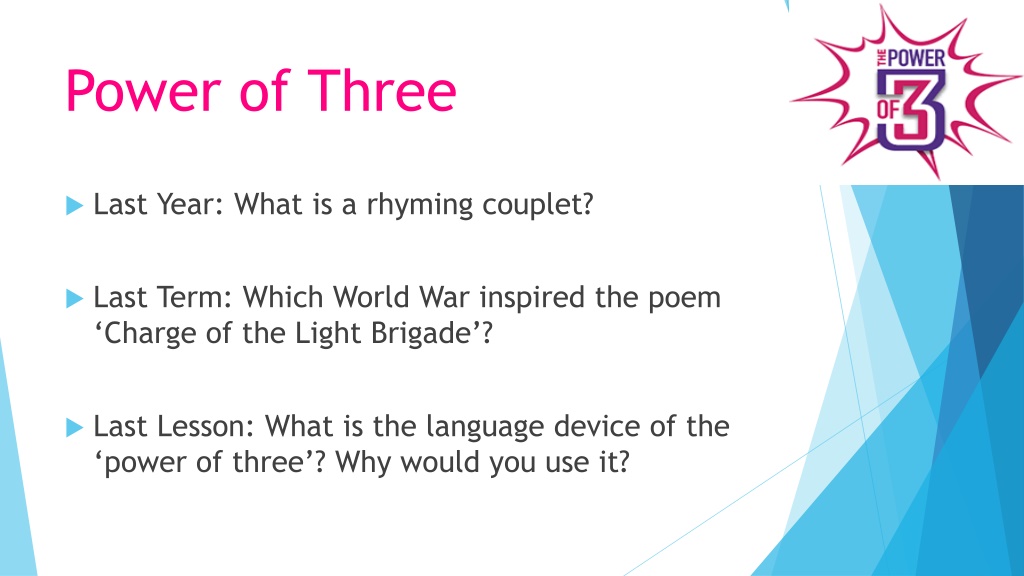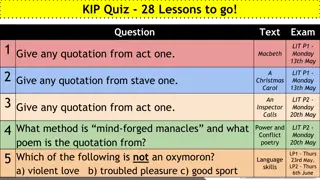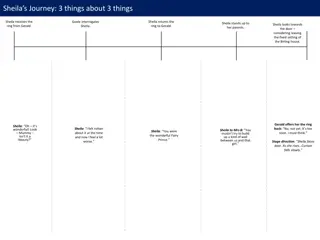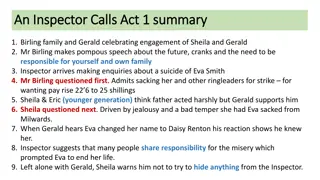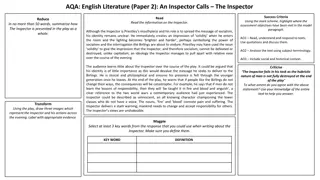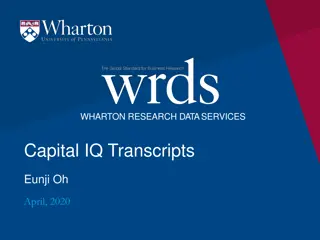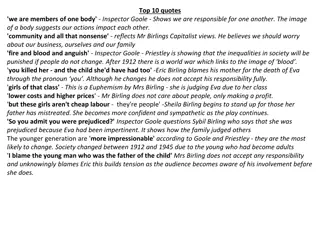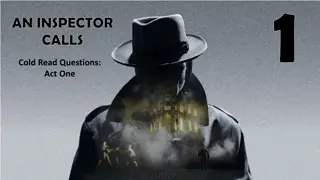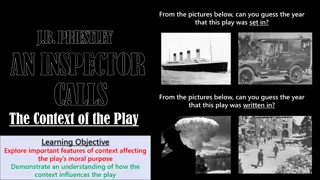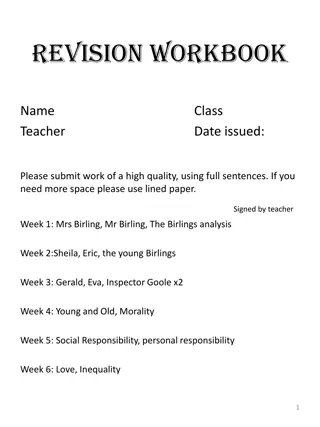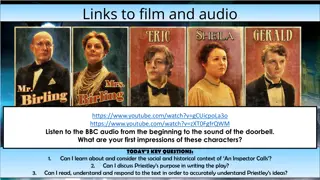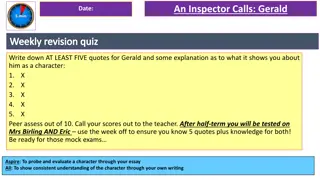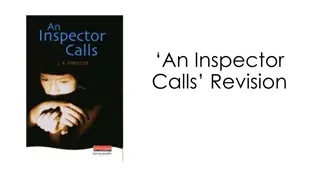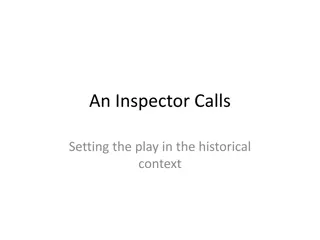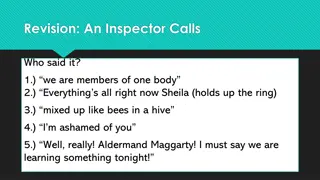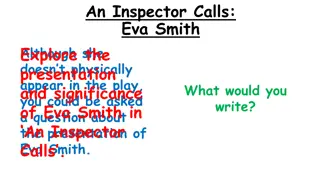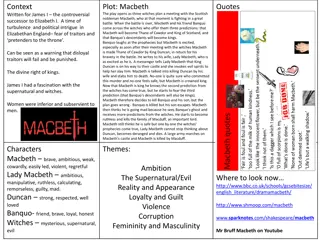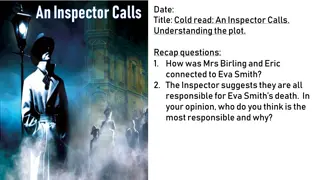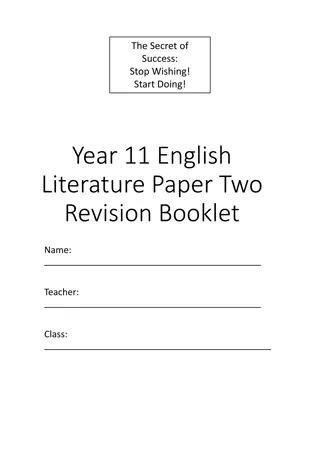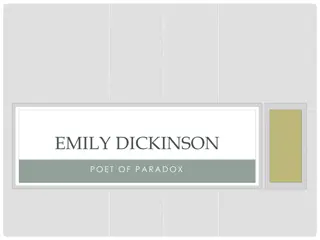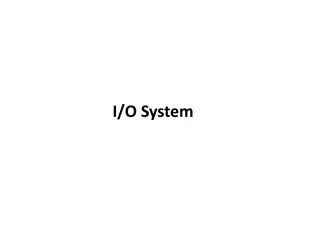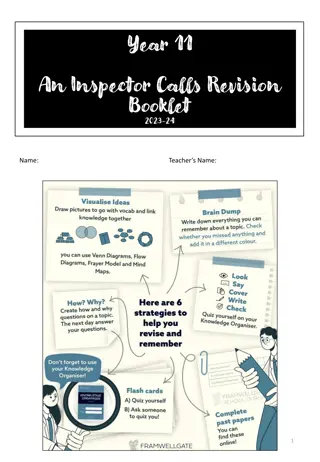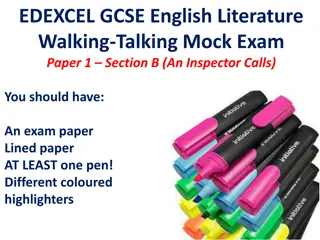Exploring Themes and Literary Devices in An Inspector Calls
The content delves into various aspects of the play "An Inspector Calls" by J.B. Priestley, focusing on dramatic irony, social classes, the impact of historical events like the Titanic sinking, and the use of powerful language devices like the power of three. Readers learn about character analysis, audience perspective, and critical themes such as patriarchy and social responsibility.
Uploaded on Oct 05, 2024 | 0 Views
Download Presentation

Please find below an Image/Link to download the presentation.
The content on the website is provided AS IS for your information and personal use only. It may not be sold, licensed, or shared on other websites without obtaining consent from the author. Download presentation by click this link. If you encounter any issues during the download, it is possible that the publisher has removed the file from their server.
E N D
Presentation Transcript
Power of Three Last Year: What is a rhyming couplet? Last Term: Which World War inspired the poem Charge of the Light Brigade ? Last Lesson: What is the language device of the power of three ? Why would you use it?
Starter Questions 1. When was the play written? When was the play set? 2. What social class are the Birlings? What clues are there that tell you this? 3. What is the difference in social status between the Birlings and Gerald s family? 4. What event are the family celebrating? 5. Issue The Titanic Birling s Prediction What really happened? War
Gold: Where do the Birlings belong? Platinum: What class are Gerald s family? Silver: Where would you place Edna?
The effect on a 1945 audience I read about the Titanic sinking and around 1500 people dying. My son died at war. Dramatic irony. What is the effect of this dramatic irony? Gold: Find an example of dramatic irony which links with one of Why might a 1945 audience dislike Birling from this point? What would they think of him? Why? What is Priestley saying? these quotes in Act 1. Explain the effect on the audience. Silver: What themes are explored in An Inspector Calls? The audience know all of these things that Mr Birling does not know. What is the name of this device? I had no money throughout the Great Depression. I went on strike. I have just lived through two world wars.
Dramatic Irony Dramatic irony occurs when the audience knows something the characters do not. When Birling talks about the Titanic being unsinkable, the audience in 1945 would know that the Titanic DID sink. What are we (the reader/audience) supposed to think about Mr. Birling? Gold: Give 4+ reasons for your answer with evidence from the text (see next slide for help) Silver: Give 2+ reasons for your answer with evidence from the text (see the next slide for help) Challenge: What is a patriarchal society?
PEZZ response example P J. B. Priestley uses dramatic irony in Act 1 of An Inspector Calls . E An example of this is when Mr Birling says ________ . Z To his family, Mr Birling is a _______ character. His family think he is _______. However, through the use of dramatic irony, the audience would see Mr Birling as _______. Zoom Out: C Priestly wrote the play in 1945 ____________. E - I think Priestley did this because _______.
Read Act 1 and make notes on the following: Birling Mrs Birling Sheila Gerald Eric Edna Inspector
Describing the characters... Select one word from the table below and one of your own to describe each of the following characters: Mr Birling, Mrs Birling, Eric, Sheila, Gerald, Inspector Goole. Controlling Powerful Responsible Pretentious Guilty Uneasy Deceitful Selfish Irresponsible
To finish Select one word from the table below and one of your own to describe each of the following characters so far: Mr Birling, Mrs Birling, Eric, Sheila, Gerald, Inspector Goole. Controlling Powerful Responsible Pretentious Guilty Uneasy Deceitful Selfish Irresponsible
